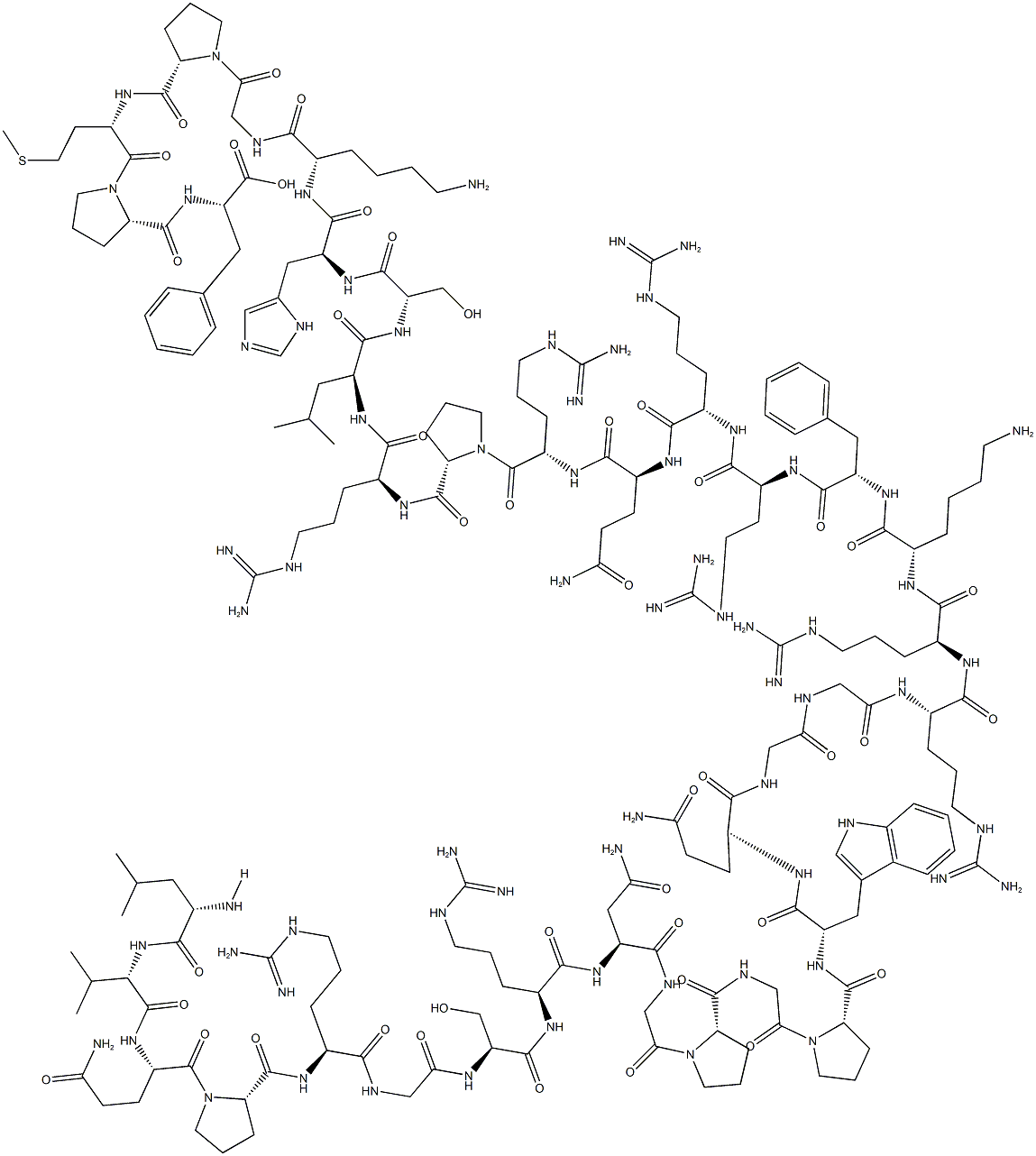The apelin gene encodes a preproprotein that is processed to generate a variety of bioactive peptides, including those having 36, 17, or 13 amino acids (apelin-36, apelin-17, and apelin-13, respectively). The apelin proteins are the endogenous ligands of the G protein-coupled receptor, APJ. Apelin-36 is the full-length mature peptide produced from the translated 77 amino acid prepropeptide. The apelins act primarily in the peripheral and central nervous system, playing important roles in regulating cardiovascular function, fluid homeostasis, hypertension, and insulin sensitivity. Apelin-36 is a less potent agonist of APJ than either apelin-17 or apelin-13 (EC50 = 20, 2.5, and 0.37 nM, respectively). Apelin-36 potently inhibits HIV-1 entry into cells expressing APJ and CD4, limiting HIV infection.

